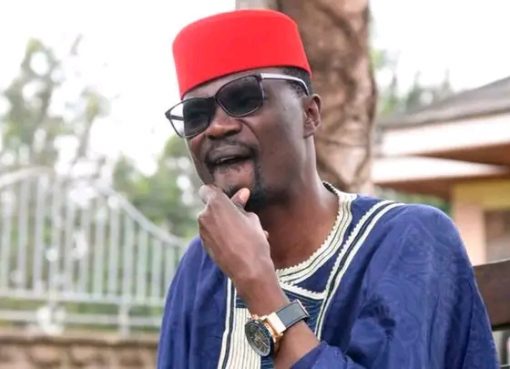Education Cabinet Secretary (CS) Julius Ogamba has commended the critical role that has been played by the Recognition of Prior Learning (RPL) programme in the success of Competency-Based Education and Training (CBET)
Speaking at Kenya School of TVET in Nairobi during the release of the July/August 2024 CBET assessment series, Ogamba noted that the RPL initiative has enabled many skilled Kenyans, particularly those whose skills were acquired outside formal education, to receive certification that reflects their competencies.
“RPL is about inclusivity and opportunity. It provides a pathway for workers to access formal employment, professional advancement, or further training,” he explained.
The CS observed that through RPL, the TVET system is providing recognition to all talents and contributions, as he encouraged all institutions to register as RPL assessment centres.
“Quality is at the core of our education reform. Therefore, we have invested heavily in the training of our TVET trainers and assessors. Through partnerships with international organizations, we have conducted extensive capacity-building programmes that ensure our trainers understand and apply CBET methodology. Our trainers are now adequately prepared to deliver competency-based training effectively,” stated Ogamba.
Kenya is implementing the recognition of prior learning policy across various institutions following its launch in March this year by the government and is being spearheaded by the Kenya National Qualifications Authority (KNQA).
The Kenya National Qualifications Authority (KNQA) coordinates implementation of the policy through awareness creation, sensitization and organizing capacity building forums.
Further, the national rollout of RPL is a timely conduit towards realizing the Kenya Kwanza Government Affordable Housing Programme (AHP) with a view to increasing the supply of housing units from the current 2 percent to 50 percent, translating to 250,000 for the next five years from the current 50,000 units per year.
“Since the decision is to fully implement CBET, we have taken concrete actions to embed this approach in every level of technical training,” asserted the CS, adding that the Government, through TVET CDACC, has spearheaded the development of over 400 competency-based curricula, all developed in close consultation with industry experts to ensure that every skill taught is directly applicable to real-world job roles.
He stressed that the government is committed to making TVET one of the pillars of Kenya’s Vision 2030 and the Bottom-Up Economic Transformation Agenda.
“In this respect, we have implemented several key initiatives designed to strengthen the TVET sector, widen access to training, and improve the quality of our programs and one of our foremost commitments has been to increase budget allocations to TVET. Quality education requires resources, and we have prioritised funding for TVET to support infrastructure development, provide modern equipment, and enable the training of our educators,” highlighted the CS.
“In expanding TVET institutions nationwide, we have also placed a particular focus on ensuring that every Kenyan, no matter their region, can access high-quality technical education,” he added.
Ogamba implored that the public today is seeing the results through more young people enrolling in TVET institutions, and more communities now having access to specialised programmes in growing sectors like ICT, manufacturing and construction.
Beyond facilities and funding, the CS disclosed that the Government has also fostered critical partnerships with the private sector, collaborations he maintains, are essential in ensuring that the programmes remain responsive to industry needs.
According to the CS, when industry actively participates in TVET through internships, apprenticeships, and curriculum input, Kenyan graduates gain the skills and experiences that make them valuable contributors from day one.
“These partnerships are instrumental in bridging the gap between education and employment, and they are a testament to our joint commitment to a skilled Kenya,” he reiterated.
By Michael Omondi




